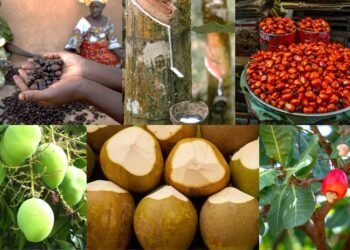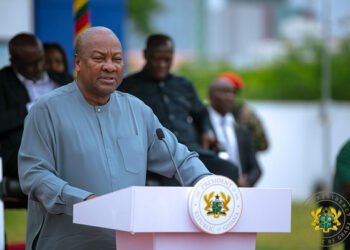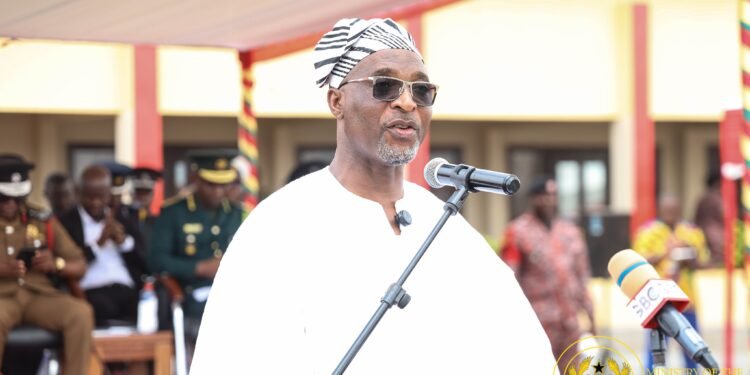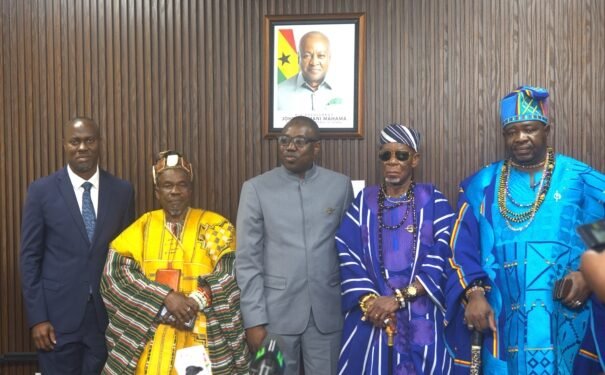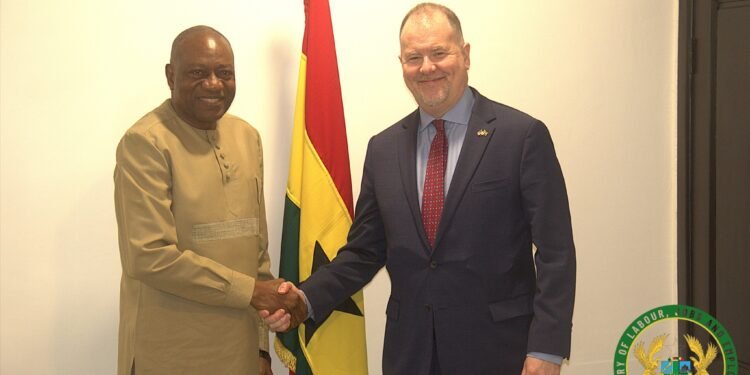The Coffee Federation of Ghana has lamented over the government’s reluctance to invest in coffee production as well as its entire value chain resulting in a decline of coffee export revenues over the past years and it’s demanding a decisive state action to ensure the transformation of the country’s coffee sector.
The Federation intimated that technical assistance, among others, remains a major component to tackling existing challenges in the coffee value chain and boost the Coffee Development Program.
Speaking in Accra at the Coffee People’s Conference for farmers, processors and exporters of the cash crop, President of the Coffee Federation of Ghana, Chief Nathaniel Ebo Nsarko intimated that due to government’s neglect of the Coffee industry, Ghana continues to lose millions of cedis thereby affecting the country’s Gross Domestic Product.
“We are calling on the government to ensure that the needed investments are put in place to help transform the coffee sector and support the industrialization of coffee, which is simpler than cocoa processing, for our domestic consumption.”
The Federation mentioned that the government’s Tree Crop Policy is expected to boost the coffee sub-sector to ensure approximately US$2 million in foreign exchange generation annually. It, therefore, called on the government to supervise a better working relationship between Coffee growers and COCOBOD to see to a proper revamping of coffee production in Ghana.
“Government must expedite action on the creation of the division for coffee to facilitate the engagement of actors in the sector towards its transformation. As the Federation of Ghana, we will want to work directly with COCOBOD since coffee was not included in the Tree Crop Authority. We want to see a better relationship and support as being done with cocoa. In fact, we believe, it would be in order, for proceeds from cocoa to be used to support the development of the coffee sector.”
Chief Nathaniel Ebo Nsarko, the President of Coffee Federation
Challenges of Coffee Farmers
According to the Federation, the coffee sector continues to deal with low government support, ageing farmers and farm and low yield per acre due to lack of coffee specific agro-inputs, pest and disease infestation and improper agro- practices.
“Farmers lack equipment, infrastructure and access to information to help them in adopting modern practices. Linked to concerns over price and quality is the fact that many producers are unable to value their own coffee in the same way that buyers and consumers do. This can make it difficult to both improve farming methods and negotiate with buyers.”
Chief Nathaniel Ebo Nsarko, the President of Coffee Federation.

In the quest to revamp and boost the coffee sector, the Coffee Federation of Ghana made some recommendations which include approval of the coffee regulations of Ghana; provision of support to reclaim ‘galamsey’ lands for coffee production; increasing investments in the coffee sub-sector as this could create over 500,000 jobs across the coffee value chain; provision of equipment such as hauling machines to farmers; introduction of crop insurance for coffee farmers; promotion of sustainable farming methods and approaches; provision of flexible, medium to long-term financing for actors in the value chain and increment in the number of technical extension officers available to support coffee farmers.
Global Value of Coffee
The Coffee Development Report 2020, published by the International Coffee Organization, has indicated that coffee is a growth market, valued at over USD 200 billion annually which is creating significant economic opportunities for growers and downstream value chain actors. Growing demand for coffee, in the last 30 years, has resulted in the expansion of coffee production and exports resulted. Global coffee production (in volume) has increased by more than 60% since the 1990.
According to the report, coffee remains an export commodity with only 30% of production consumed domestically. The value of annual cross-border coffee exports (all forms, i.e., green, roasted, soluble) has more than quadrupled from USD 8.4 billion in 1991 to USD 35.6 billion in 2018.
“With the rise of global value chains, the coffee sector has experienced growth in production, productivity, value addition, employment, and international trade,” the report says.
With the African Continental Free Trade Agreement (AfCFTA) in place, there is a great opportunity for Ghana to boost its exports revenue by spurring production and processing of various agricultural products such as coffee to help the country realize the ‘Ghana Beyond Aid Vision’.
Read also: Ghana to earn $16billion annually from tree crops








